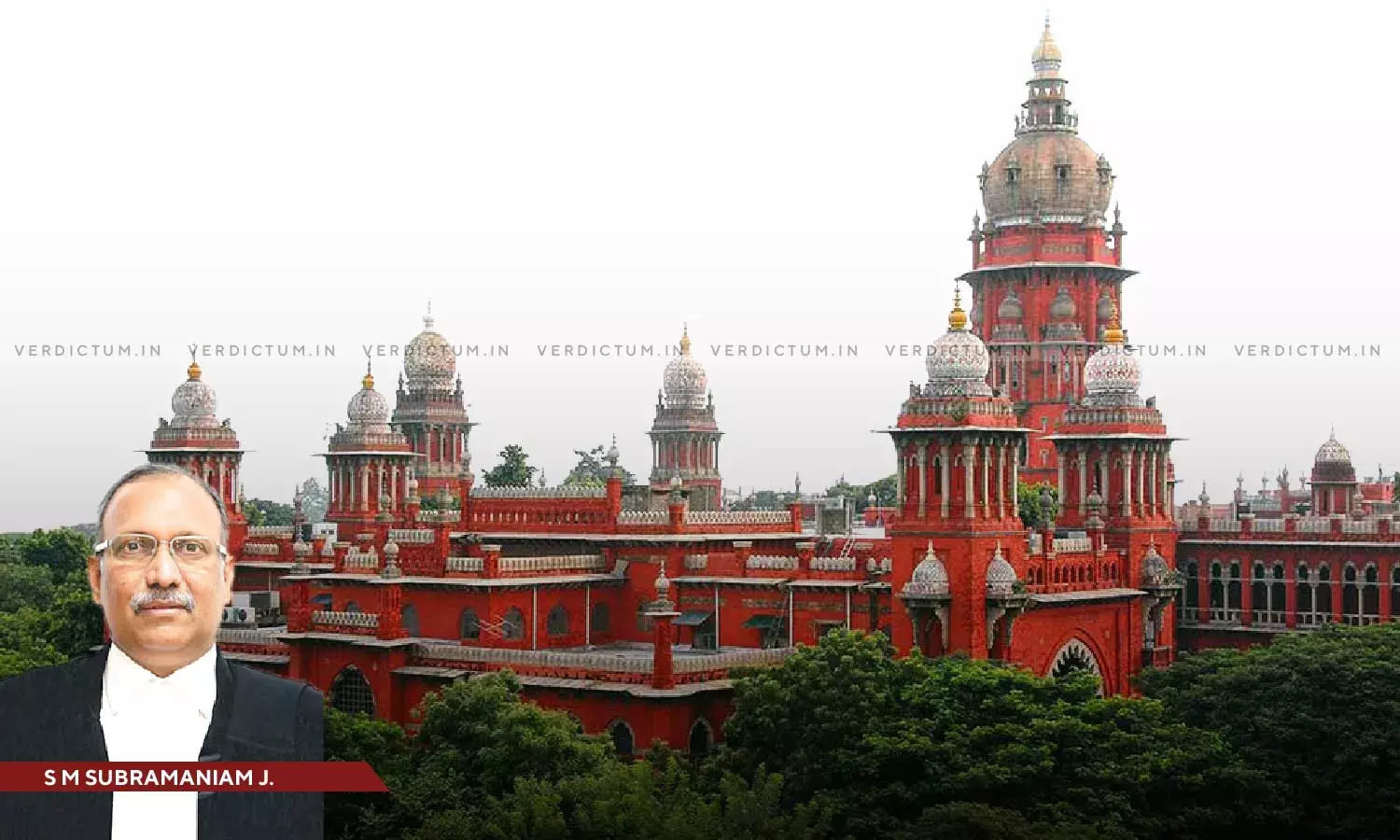Encumbrance Made Without Creating Any Mortgage Against Property Is Not In Consonance With TNGST Act: Madras HC
The Madras High Court recently ruled that the actions initiated against the petitioner were in violation of the provisions of the TNGST Act and more so the petitioner was not a sales tax assessee and she was a bona fide purchaser of the property from her vendor.
A Bench of Justice S.M Subramaniam observed that when the subject property, which has not been mortgaged or charge has been created in consonance with the provisions of the erstwhile TNGST Act and Rules, then the contention of the respondent that they are entitled to create an encumbrance in the office of the Sub-Registrar is untenable and the encumbrance made without creating any mortgage or charge cannot be held as in consonance with the provisions of the erstwhile TNGST Act.
In the absence of creating any mortgage as contemplated under the Transfer of Property Act, mere personal undertaking cannot be construed as a mortgage or charge created under Explanation I to Section 24 (15-A) of the erstwhile TNGST Act or under the Transfer of Property Act, added the Bench.
Advocate T. Muruga Manickam appeared for the Petitioner and Additional Advocate General Haja Nazirudeen along with Special Government Pleader M. Venkateswaran appeared for the Respondents.
Going by the background of the case, the petitioner (taxpayer) purchased a house property in Coimbatore from one vendor Rangarajan under registered sale deed, after being satisfied that there was no encumbrance on the property. This purchase was done by availing bank loan. The vendor had obtained the property by way of settlement deed executed by his son Gopalakrishnan, who derived this property from his mother Kanthimathi by way of a settlement deed, and said Kanthimathi had purchased the property from one Krishnaraj.
After purchase, the petitioner came to know that the Assistant Commissioner of had made enquiries about the property for recovery of alleged sales tax arrears. Subsequently the petitioner learned that her vendor along with the other two had formed a company in the name of 'Maze net Solutions India Private Limited' and the said Kanthimathi had given the property by way of security for the purpose of registration of the said company under the erstwhile TNGST Act. Further, the said Kanthimathi had given a personal undertaking to pay the Government of Tamil Nadu the sum of tax fee, which occurs against her or her firm.
Contending that the security created by Kanthimathi was only for purpose of registration of the company as mandated under Section 21 of TNGST read with Rule 24 (15A) and that she never intended to mortgage the property for purpose of security, petitioner had approached the present court.
After considering the submissions, the High Court found from the perusal of Explanation-I to Section 24 (15-A) of the erstwhile Tamil Nadu General Sales Tax Rules, 1959, that where the security furnished in the form of immovable property, the person furnishing it may in any town to which Section 58(f) of the Transfer of Property Act, 1882 Central Act IV of 1883 is applicable, mortgage such property to the Government by deposit of title deeds.
Therefore, it is necessary to create a mortgage as contemplated under the Transfer of Property Act, added the Court.
Finding that the Form 19-B (as per the erstwhile TNGST Rules) security bond signed by the vendor of the petitioner was restricted only to the extent of her personal undertaking and there was no mortgage or charge created in respect of the property purchased by the petitioner from the said Kanthimathi, the High Court opined that the security bond executed by the vendor of the petitioner is not in consonance with the Form prescribed under the erstwhile TNGST Rules.
Accordingly, the High Court quashed the encumbrances created against the petitioner’s property and allowed the petition.
Cause Title: M. Karpagam vs. Assistant Commissioner of Commercial Taxes and Anr.












